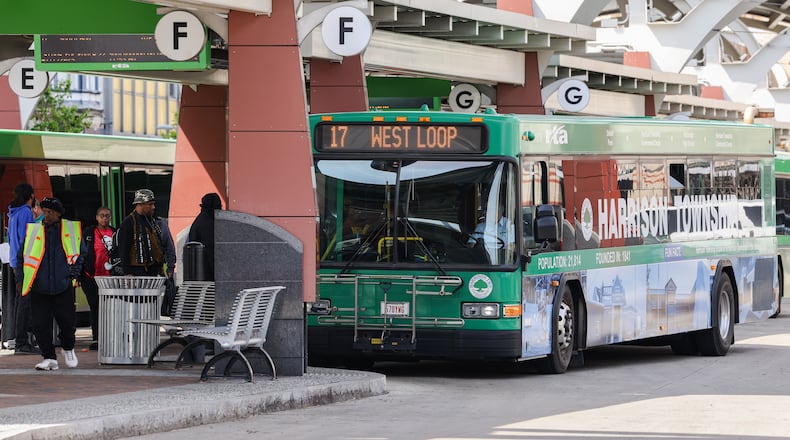“The district is discussing this now because transportation is in need of improvement,” Lawrence said. “Even though changes could not be implemented next year, there is the possibility of a positive transformation the following year.”
District officials have identified several problems to changing the current bus situation, including the number of students they are busing to charter and private schools, the amount of money the state reimburses local schools for transporting students, and a lack of buses that would take at least a year to get before they could be used.
A provision in the state’s budget bill, House Bill 96, would mandate that students could not be routed through a main bus hub if it passes. The provision would impact not just Dayton, but other big city schools, including Cincinnati, which also uses metro buses to get high school students to school.
Dayton Public Schools has long been criticized for busing, and not just since charter schools became more common in the city. Lawrence said he remembers there being issues with busing when he was in high school nearly 45 years ago.
In a meeting with a handful of members of the public, Dayton Public Schools business manager Marvin Jones said alternative bus hubs for students would increase costs to the Greater Dayton RTA. He said a limited-service route could cost about $3 million if the buses ran just for DPS students, and $6 million if DPS included charter and private school students.
By Ohio law, DPS has to provide the same transportation services to charter and private school students they do to Dayton Public students.
DPS officials said they, the students, and the public all seem to prefer the option to put students on yellow buses to school. But Lawrence said students use DPS-issued bus passes to get to work on weekends, and the cost and time is prohibitive to get new buses and drivers anytime soon.
“Our preference is to transport our own kids,” including charter and private school students, said assistant business manager Stacey Benson-Taylor. “We just have to figure out how to do that.”
Bob Ruzinsky, RTA CEO, said this solution would keep students from having to travel downtown to change buses after school. He said RTA could send several buses to each high school in the afternoon and take students to Welcome Stadium or another site.
“It just wouldn’t work in the morning because you’re starting with everyone in 80 bazillion places, but in the afternoon, you are starting from six different places and going to one,” he said, adding that RTA is having to send out six to 12 extra buses on its normal routes to handle student passenger loads.
He said this is probably the best option of the current DPS school transportation proposals that involve RTA. He said the best solution would be for students to ride to and from school on yellow school buses, but that hasn’t happened and he believes it may not gain traction.
RTA has provided limited-service routes in the past for DPS, which includes a five-year contract the transit agency had with DPS that the school district cancelled after one year.
Ruzinsky said the RTA is not interested in providing that kind of limited service again, unless DPS were willing to enter a long-term, binding agreement that included upfront payments. He said RTA would want a contract with DPS for any limited service.
Dayton Public has said previously it would cost about $11 million to purchase enough new buses to transport high school students. If they contracted with a third party, like First Student, that could also be cost prohibitive – DPS previously paid $17 million over three years to transport kindergarten through eighth grade charter and private school students, but the district and First Student dissolved the agreement in 2022 because of new rules from the state about delivery time.


